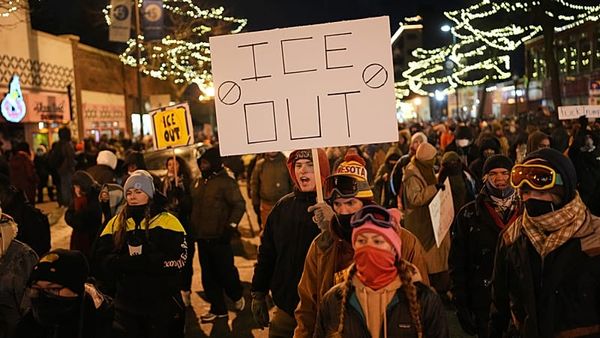
The predatory American healthcare system is about to encounter new prey in the form of millions of families thrown off Medicaid rolls.
Medicaid participation has swelled by approximately 30% to nearly 100 million Americans due to the March 2020 COVID-19 federal relief package that prevented states from kicking ineligible recipients off the program. On Mar. 31, that coverage protection came to an end.
According to the Kaiser Family Foundation, about 15 million people will lose their Medicaid coverage as states restart their eligibility checks. The most vulnerable Americans will suddenly have to contend with arguably the most broken aspect of American society.
Health care price transparency can lower the outrageous cost of care and coverage for these ex-Medicaid recipients looking for affordable treatments and health plans to maintain access to care. Actual, upfront prices can give them financial peace of mind that routine care won't result in financial ruin.
Price transparency can defeat the notoriously overcharging American healthcare cartel that bankrupts ordinary Americans by blinding them to prices–then blindsiding them with bills they often never would have agreed to if prices were known upfront.
As a result of this opaque dynamic that exists nowhere else in the economy, hospitals have a blank check to price gouge. According to research by Johns Hopkins University, hospitals charge an average of seven times their cost of care.
A federal hospital price transparency rule that took effect on Jan. 1, 2021 requires hospitals to post their actual prices online, including discounted cash and all health insurance rates by plan.
Unfortunately, the implementation of the new rule has been marred by widespread hospital noncompliance. According to a recent study by PatientRightsAdvocate.org, only 24.5% of hospitals are fully following it by providing complete and clear price information needed to comparison shop for health care.
The Biden administration can use the occasion of Medicaid enrollees being thrown onto the unaffordable private healthcare market to commit to robust enforcement of the rule. Doing so can arm these low-income, disproportionately minority Americans with actionable price information to lower their costs of care and coverage through choice and competition.
So far, the Department of Health and Human Services has only issued fines on two hospitals out of the thousands that are noncomplaint. Yet even this meager response shows the power of enforcement. These two hospitals quickly became compliant and, to date, publish exemplary price files. The administration can boost compliance by extending the $2 million financial penalty to all hospitals not posting their prices.
When all hospitals post their actual prices, tech innovators can aggregate them in easy-to-use web applications like Kayak or Expedia. Shopping for care can then resemble browsing for flights or hotels, ushering in the kind of fierce competition that drives down prices.
Without action, this health care system will devastate former Medicaid recipients. Yet robust price transparency can empower them to avoid healthcare overcharging, fight overbilling, and find affordable alternatives.
When real prices are known, healthcare consumers can see the well-documented widespread price variations for the same care, even at the same hospital. A recent study in Nature finds that the cash price of a prostatectomy varies nationwide from $1,476 to $47,445. With price transparency, no American–and certainly no one on a fixed income–will pay 32 times more than their neighbor for the same care.
Robust price transparency can generate a healthcare revolution that empowers all American consumers to control their health and wealth. It can allow the 15 million Americans who are at risk of losing their Medicaid coverage to maintain access to treatment–without fear of being devoured by the American healthcare beast.
Cynthia A. Fisher is the founder and chairman of PatientRightsAdvocate.org.
The opinions expressed in Fortune.com commentary pieces are solely the views of their authors and do not necessarily reflect the opinions and beliefs of Fortune.
More must-read commentary published by Fortune:
- A recession in 2023 is now inevitable. Layoffs in tech and finance will spread to other sectors
- Energy analysts have been making gaseous calls since Russia invaded Ukraine. It’s time to clear away the smoke of economic groupthink
- I am a Starbucks barista who doesn’t qualify for all the wonderful benefits you keep hearing about. We want the ‘different kind of company’ that Howard Schultz promised but failed to deliver
- The average NFL owner is 75–and not rich enough to hang onto their team







